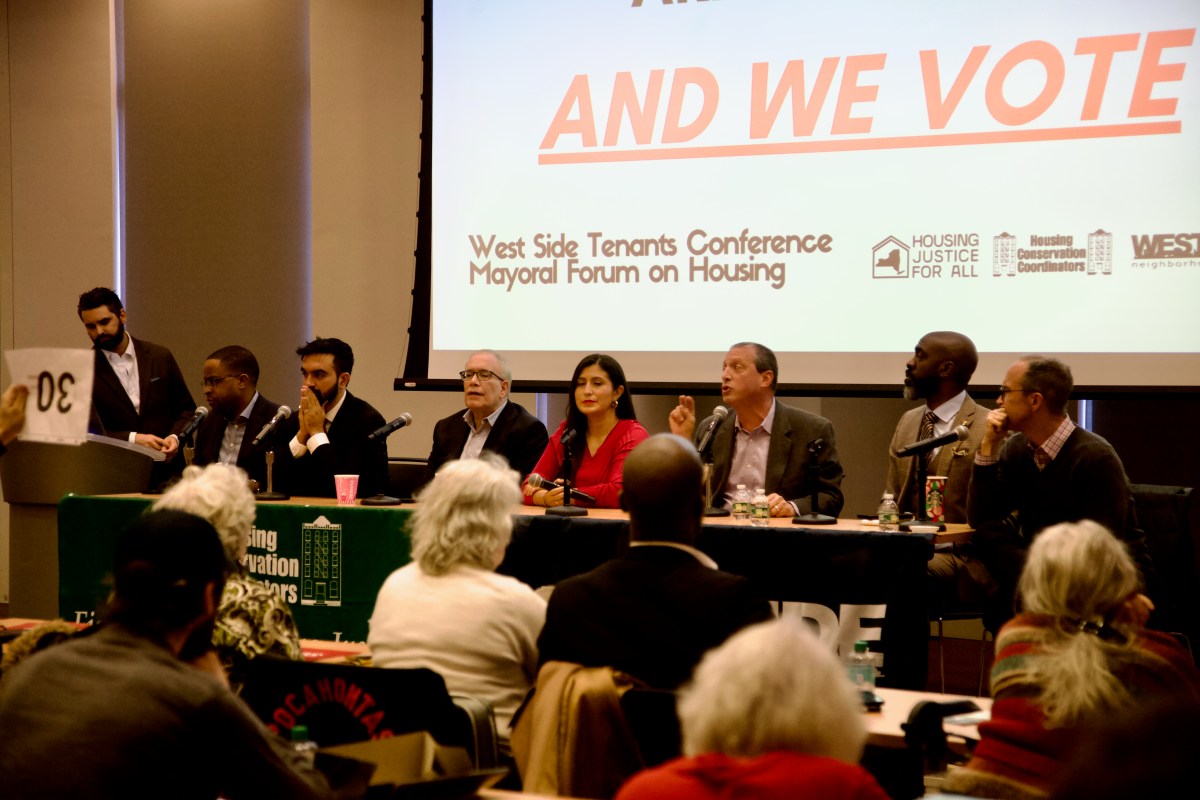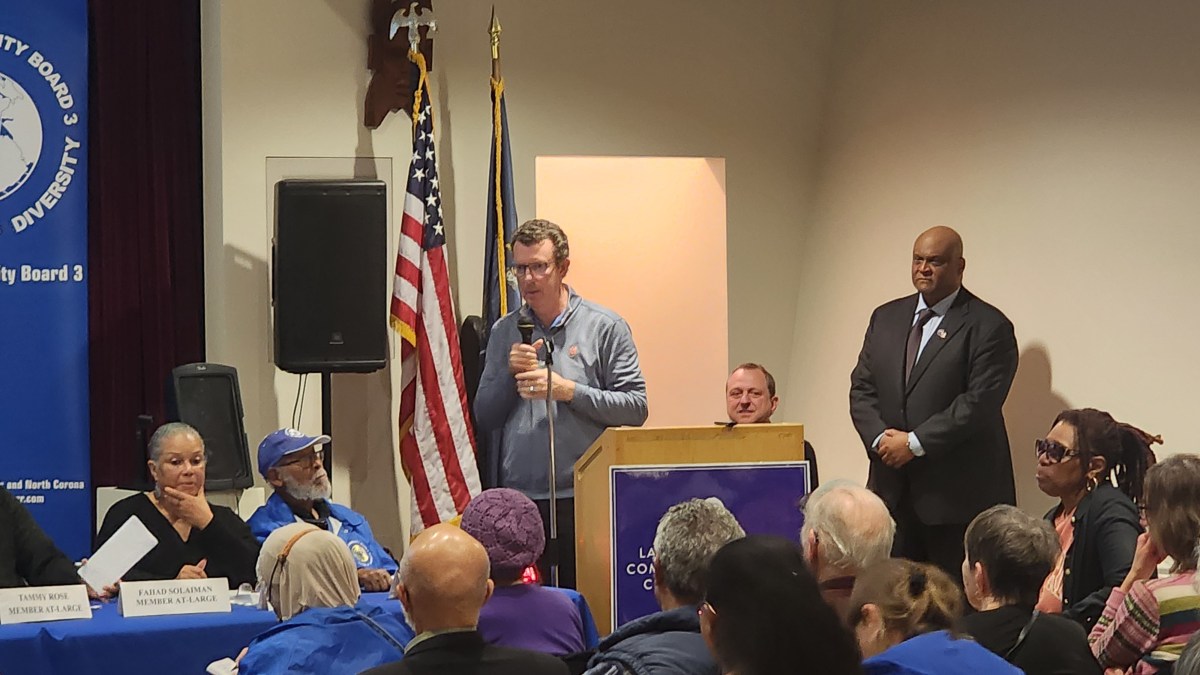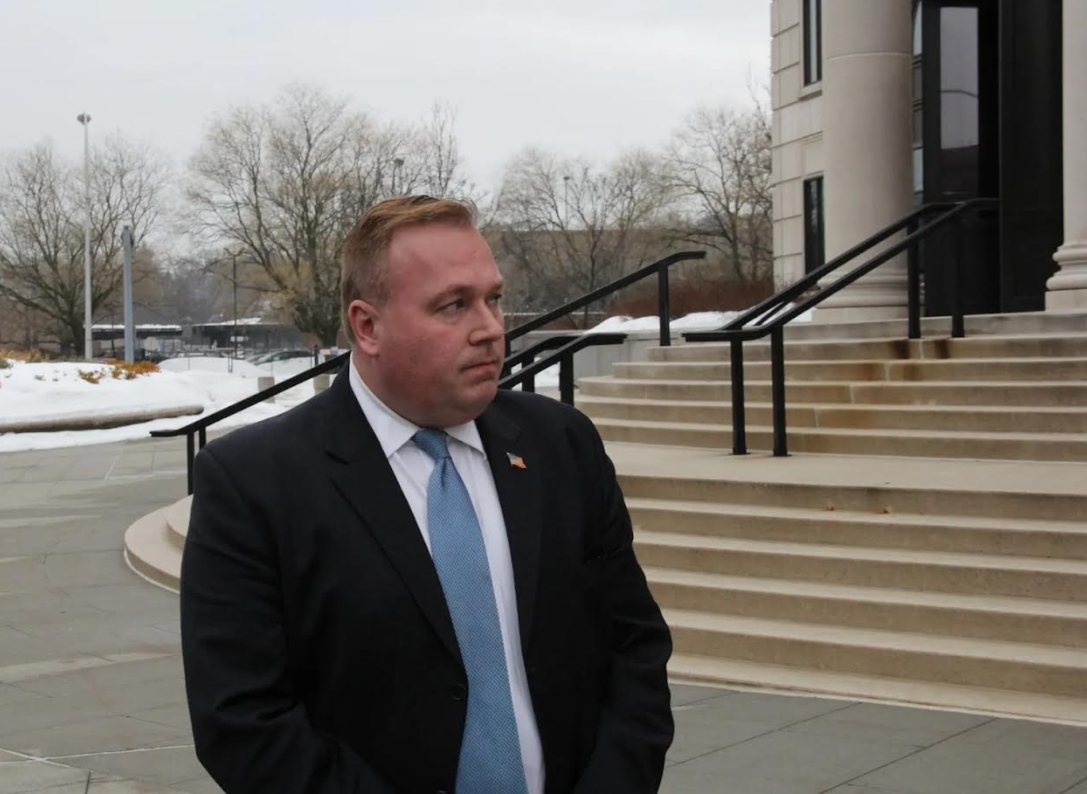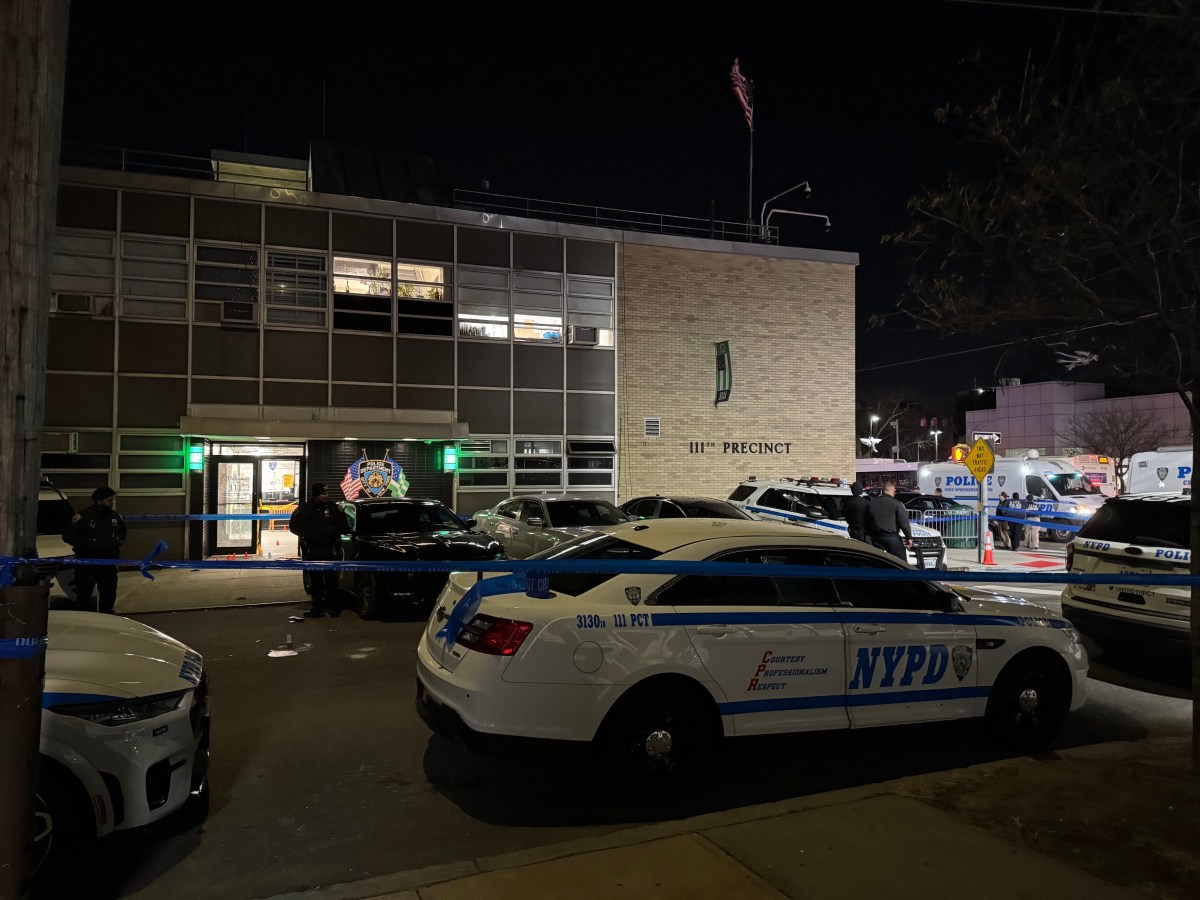The boisterous audience of an Upper West Side housing policy-focused forum for seven mayoral candidates on Saturday did not waste any time to make their priority known.
“Freeze the rent!” the crowd chanted before the forum even had a chance to kick off.
In response, all the candidates present suggested they are at least open to pushing for a rent freeze on the city’s 2.4 million rent-stabilized tenants — several in more concrete terms than others.
Three candidates — Queens Assembly Member Zohran Mamdani, state Sen. Jessica Ramos and former Bronx Assembly Member Michael Blake — all unconditionally stated that they would push for a freeze.
The other four — Brooklyn state Sen. Zellnor Myrie, former City Comptroller Scott Stringer, current City Comptroller Brad Lander and attorney Jim Walden — all answered that they would be sympathetic to rent-stabilized tenants without directly affirming that they would selectively appoint rent guidelines board members to ensure that outcome.
The forum at Fordham Law School on Saturday afternoon, sponsored by a coalition of housing and neighborhood advocates, found the group of mayoral hopefuls mostly coalescing over a set of housing policies.
The candidates generally agreed on the need to build more middle—and low-income housing to stop market-rate rents from going up, ramp up code enforcement for bad landlords, retool the city’s right-to-counsel program to provide housing lawyers and expand the city’s housing voucher system for the housing insecure.
Differences between the candidates manifested along the margins or in emphasis. One point of contention centered on how the candidates would improve the New York City Housing Authority (NYCHA).
Ramos, for instance, took a hard line against the conversion of public housing developments to private management programs.
“No private management of our buildings. No developers, any of that. We have to keep public housing, public housing,” she said.
Blake and Walden on the other hand, want to leave these types of conversions, which can come with extra funding and renovations, as an option for NYCHA tenants to pursue if they want.
“It is very difficult to give a blanket yes or no because there have been tenants who have said they’re open to it,” Blake said.
Another point of disagreement came over a new Council bill that would relax some of the restrictions Airbnb property owners.
While most of the candidates expressed opposition to the bill and two (Walden and Myrie) said they were not familiar, Blake said that he’s not against “people that are utilizing Airbnb to get extra money for their own household” and suggested that he might be in favor, depending on the law’s fine print.
While all the candidates outlined plans to beef up enforcement actions against bad landlords, went so far as to advocate for repossessing buildings in severe cases. Mamdani proposed the idea of “taking away buildings from landlords who clearly have no interest in running them” to convert them to community-owned housing.
Walden, a former Eastern District of New York prosecutor, described a similar plan to stop repeat bad actors from renting but said he wasn’t sure whether the housing should be put back on the market or into a tenant ownership model.
“I don’t know the answer to that question yet,” he said.





































